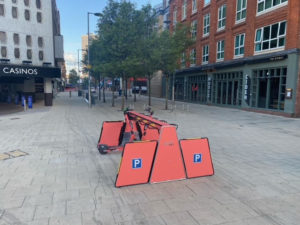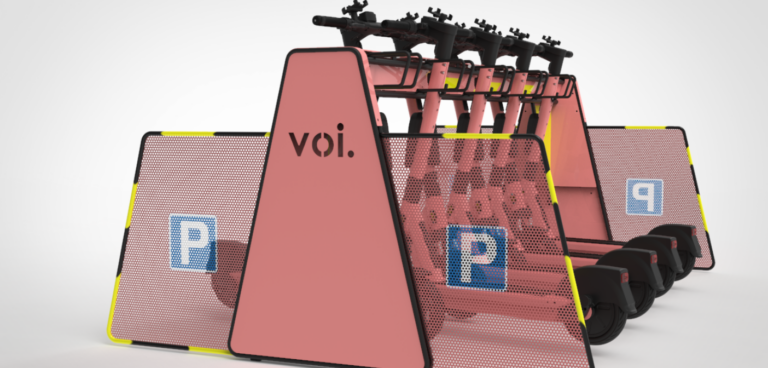Swedish micromobility operator Voi has redesigned its parking racks, creating new ones in collaboration with the Royal National Institute of Blind People (RNIB), to help reduce street clutter and improve e-scooter parking habits.
The new parking racks have extended and raised side panels to enclose the whole length of the e-scooter. Voi has also increased the colour contrast on all sides.
The micromobility company said it has worked to make the scooter rack more visually distinctive, to help cane users to locate and avoid the scooter rack more easily. Each rack can hold up to 10 e-scooters and the first RNIB redesigned racks will be installed in Birmingham before being rolled out in areas where Voi is trialing its e-scooters.

Jack Samler, general manager at Voi UK and Ireland, said: “We’ve been working closely with RNIB for several months to redesign our e-scooter racks to improve the visibility and address mobility issues faced by blind and partially sighted people.
“During the upcoming months, we will be installing these parking racks in cities where we have trials, and we are looking forward to evaluating the impact that the collaborative design has during the trials.”
This project is part of Voi’s wider working collaboration with RNIB to understand the needs of blind and partially sighted pedestrians.
According to the operator it has already taken the first steps in implementing the organisation’s recommendations. This includes rider education, training, e-scooter sound alerts and now the redesign of its parking racks.
Andy Street, the mayor of the West Midlands, added: “The e-scooter trial in the West Midlands is all about learning from people’s experiences to develop a scheme which works for riders and the wider travelling public.
“The RNIB have raised legitimate concerns regarding the scheme, and it is to Voi’s credit that they have worked in partnership with them to design these new racks that are now starting to be installed in Birmingham. If we want e-scooters to become part of the UK’s transport system, then we have to use trials like ours to make sure they work for everybody.”





